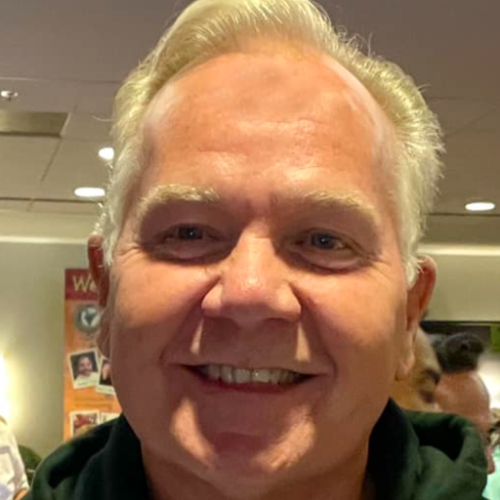-
I Am The Light! Series
Contributed by Michael Mccartney on Nov 28, 2017 (message contributor)
Summary: John uses Jesus' "I Am" proclamations to prove that Jesus was the Messiah – God in the flesh - and these proclamations are pivotal for the Jews and Christians to understand. Today Jesus will at the end of the Feast of Tabernacles a celebration with Light
"I am the Light of the world”
Series” I Am pt 2
Transition video Clip from worship to message: “I am intro.”
Thesis: John uses Jesus' "I Am" proclamations to prove that Jesus was the Messiah – God in the flesh - and these proclamations are pivotal for the Jews and Christians to understand. Today Jesus will at the end of the Feast of Tabernacles a celebration with Light make his 2nd “I am” statement – “I am the Light of the world!”
Introduction:
In sermon one, we laid the foundation for the meaning of God's name, "I Am". Let's review.
"I Am" God's name found in Exodus 3:14 was an answer to Moses when Moses asked for credentials to prove to Israel that God had indeed authorized him to lead them out of bondage and into freedom.
The disclosure of the name given from the burning bush represents that this entity was eternal and constant. This scenario revealed to Moses and Israel that this was the same God of their forefathers. "I Am" designates a characteristic (The Main One) that "I Am" represents absolute timeless existence. He always was but with the twist He is here now, present tense and He will be with us also into the future.
The apostle John, in the New Testament revealed that Christ's "I Am" signified that He was the same God of the Old Testament and is the "Bread of Life". He is the only source for life sustaining food which will enable us to live forever.
Highlight the chapter between these two impactful statements! Chapter 7
John then reveals Jesus second, "I Am" proclamation in John 8:12.
John 8:12: "When Jesus spoke again to the people, he said, "I am the light of the world. Whoever follows me will never walk in darkness, but will have the light of life."
Video Illustration: The light from sermon spice.
Hands on illustration: Hold up the boat light and shine it on the church, then tell the story of Eddystone lighthouse.
The famous Eddystone lighthouse off the coast of Cornwall, England, was first built in a fanciful way, by the learned and eccentric Winstanley. On its sides he put various boastful inscriptions. He was very proud of his structure, and from his lofty balcony used boldly to defy the storm, crying, "Blow, O winds! Rise, O ocean! Break forth, ye elements, and try my work!" But one fearful night the sea swallowed up the tower and its builder.
The lighthouse was built a second time of wood and stone by Rudyard. The form was good, but the wood gave hold for the elements and the builder and his structure perished in the flames.
Next the great Smeaton was called. He raised a cone from the solid rock upon which it was built, and riveted it to the rock; as the oak is fastened to the earth by its roots. From the rock of the foundation he took the rock of the superstructure. He carved upon it no boastful inscription like those of Winstanley, but on its lower course he put, "Except the Lord build the house, they labor in vain that build it;" and its keystone, above the lantern, the simple tribute, "Laus Deo!" and the structure still stands, holding its beacon light to storm-tossed mariners.
Fellow-workers for the salvation of men, Christ, the Light, must be held up before men or they will perish. Let us, then, place Him on no superstructure of our own device. Let us rear no tower of wood, or wood and stone. But taking the word of God for our foundation, let us build our structure upon its massive, solid truth, and on every course put Smeaton's humble inscription, and then we may be sure that the lighthouse will stand -- Selected.
I. The historical message of light!
a. The Exegesis of John Chapter 8: 12-59 with the emphasis on Christ's proclamation, "I am the light of the world" and responses.
b. John 8: 12-59: Basic Outline
i. Jesus' statement and reaction of His enemies. They attack the witness borne to Him. (12-20)
ii. Discussion goes to the fate of dying in sins. (21-24)
iii. The relationship between Father and Son. (25-30)
iv. The fact that the enemies of Jesus are slaves to sin. (31-47)
v. Section concludes with an emphasis on the glory given by the Father to the Son. (48-59)
c. Historical Setting: Rabbi Biba Singorus said, "Light is the name of the Messiah" as it is written, "Light dwells with him," Dan. 2:22. Jews considered the Messiah to be the light.
i. The Old Testament had many references to God being the light.
1. II Samuel 22:29 " You are my lamp, O Lord the Lord turns my darkness into light."
2. Psalm 27:1 "The Lord is my light and my salvation; whom shall I fear....”

 Sermon Central
Sermon Central



